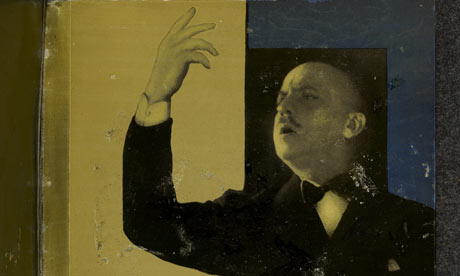British Library buys Futurists’ metal manifesto
by Mark Brown
This article originally appeared in the Guardian on Friday 20 February 2009 on p15 of the UK news section.

It is known as The Tin Book and was co-authored by a fascist-sympathising Italian artist who, 100 years ago today, said all libraries should be destroyed. With wonderful irony, the British Library announced yesterday that it had bought an edition of the book, an artefact that is at once rare, unusual and significant.
The library has spent £83,000 on this pivotal work in the development of the Italian Futurist art movement. Entitled Parole in Libertá Futuriste Olfattive Tattili Termiche (Words in Futurist, Olfactory, Tactile, Thermal Freedom), it may not have the snappiest of titles, but the 27-page metal book is a thing of considerable beauty and exemplifies the mad dynamism and energy of the Futurists.
Stephen Bury, the head of the library’s European and American collections, said the acquisition was important for the institution’s collection of about 10,000 avant-garde printed materials.
“We now have the three most important Italian Futurist books and they can now be studied together. You wouldn’t get them together anywhere else.”
The book has poems by the artist Filippo Tommaso Marinetti and visual interpretations of them by his Futurist friend, Tullio D’Albisola.
The acquisition comes in the 100th anniversary year of the founding of Futurism. The movement was launched by the publication of a manifesto written by the Mussolini-supporting Marinetti, which Le Figaro newspaper printed on its front page.
The manifesto urged artists to look forward and embrace aggression, speed and technology. It glorified war as “the only true hygiene of the world” and promised to “destroy museums, libraries, and fight against moralism, feminism, and all utilitarian cowardice.”
David Barrie, director of the Art Fund, said: “This metal book is an extraordinary invention, testifying to the revolutionary spirit of a movement that genuinely believed in the power of art to change the world. It also gives us an insight into the fascinating and complex relationship between Italy’s creative elite and the forces of Fascism.”
The sale came about after the library was approached by a dealer in Edinburgh on behalf of the Miami-based Sackner Archive of Visual and Concrete Poetry. The book is now on display in the British Library’s Treasures gallery and is only the second copy in public hands in Europe.
One Reply to “The Tin Book”